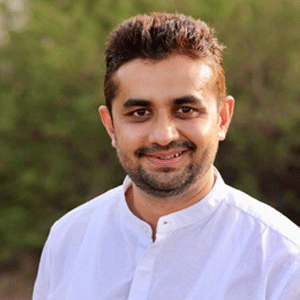
In recent years, the global agricultural landscape has witnessed a significant transformation driven by the need for modern farming practices. As the world's population continues to grow, so does the demand for fruits and vegetables.
However, farmers have issues with figs and its high-chances of perishability. Small farmers are hesitant to transition to microhorticulture crops business. Additionally, there is very little research on figs and fruits in pre-harvest and post-harvest practices, and the market for these fruits is still unexplored. Known for producing and delivering finest fruits such as figs, guavas and custard apples cultivated by generations of farmers in the nation, Purandar Highlands Farmers Producers Company (PHFPC) is one of the promising companies empowering farmers to take local produce to global markets while addressing perishability issues.
It was during a visit to Berlin Fruit Logistica in 2014 where PHFPC’s leadership realized that the world is betting big on highly perishable fruits, fresh as well as processed. Inspired by this, they decided to create a company to help the farmers better market their produce and get greater compensation for it. Rohan Satish Ursal, Chairman and MD of PHFPC. shares, “What inspired me was how Berlin Fruit Logistica brought together numerous farmers from across the world. Farmers brought along their agricultural produce and the graded produce was then supplied to the world market.
Interestingly, the market price offered to these farmer is greater and more stable as compared to other markets.”
Today, Purandar Highlands’ fig farmers have found a way around the short shelf life of their produce. PHFPC overcomes all the gaps by combining experience, expertise and technology. The firm has devised a polypropylene-based laser-perforated packaging solution that increases the shelf-life of Purandar figs by 21 days post-harvest when stored at a stipulated temperature. Under the guidance of its 13 directors, PHFPC handles everything, right from sapling selection to innovative processed products like juices and fruit spreads, with each director taking on various responsibilities.
“With the FMCG sector becoming increasingly dynamic, especially with the rise of e-marketplaces and global demand for healthy, farm-fresh products, we aim to tap into the world markets with niche and highly perishable fruit crops like the GI tagged Purandar Figs which are not found elsewhere, in either the fresh form or processed ones,” emphasizes Rohan.
What sets Purandar apart is its multi-pronged sales strategy, selling fresh fruits and processed items such as Fruit Spreads, juices and frozen pulps. For example, the fig juice, a first-of-its-kind, has a provisional patent, and PHFPC recently won an award at the Salon International de l’alimentation (SIAL). The company’s focus is on sustainable innovation that benefits the farmer members, ensuring that every product it launches has the potential for global markets.
With the FMCG sector becoming increasingly dynamic, especially with the rise of e-marketplaces & global demand for healthy, farm-fresh products, PHFPC aim to deliver from farm to table, tapping into this niche market
Another aspect that makes PHFPC unique is its global agricultural practices (GAP) that will reduce the risk of microbial contamination related to food-borne illnesses. PHFPC has tied up with Bayer Crop Sciences to introduce GAP, a certification system that includes worker hygiene and health, manure use and water quality throughout the production and harvesting process. This ensures the products are safe and wholesome.
Currently catering to Hamburg, Rotterdam, Hong Kong, and Malaysia as of now, for the future, the company aims to tap into the world markets with niche and highly perishable fruit crops which are not found elsewhere, in either the fresh form or processed ones.
We use cookies to ensure you get the best experience on our website. Read more...